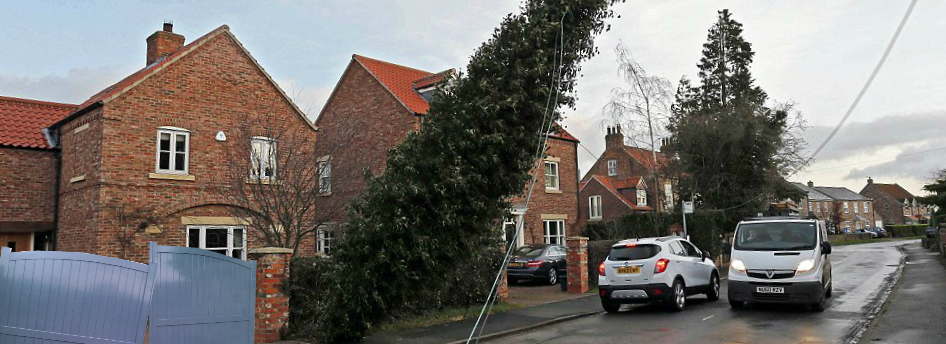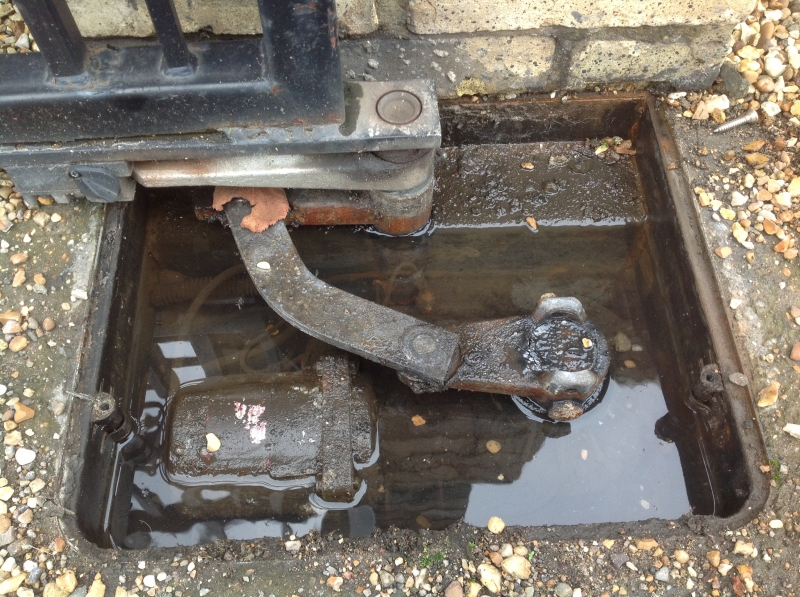-
Your shopping cart is empty!
Menu
Your shopping cart is empty!

For owners of automatic gates, regular servicing should be part of their maintenance schedule to keep gates working as effectively as possible.
All owners can give their gates a regular check to make sure there is nothing obviously worn, damaged or broken, but there are times when an unscheduled inspection is strongly recommended.
The aftermath of storms, such as hurricane Doris that hit the UK in early 2017, are the perfect time to check your automatic gates for unexpected problems.
What to Look For
Foundations
Strong winds push and pull gate pillars, posts and piers but also affect them indirectly by blowing onto the gates themselves. The slightest movement in pillars and posts is turned into a destructive backward and forward see-sawing action which will damage foundations.
Heavy rain and the resulting flooding and torrents of rainwater can seriously affect post foundations by washing away surrounding ground. In both cases, foundations need to be repaired as soon as possible to prevent gate posts or brick piers from collapsing.

Underground motors
Underground motors with the best drainage in the world will flood when torrential rain falls for long enough. If the motors are left submerged for too long, they will suffer from corrosion. This eventually causes significant motor damage requiring expensive replacement.
Hinges
If gates are operated in strong winds, additional pressure is applied to the hinges. This can cause buckling and/or damage to the mounting points on the gates or pillars and posts. Any damage to hinges will cause the gates to move excessively in unwanted directions during gate opening and closing. This causes excessive wear but damaged hinges may break and drop their gates.
Motors
The mounting points of gate motors suffer the same issues as hinges. But this may be even more pronounced as gate motors exert forces directly onto the gates that are opposed (or enhanced) by strong winds. If a gate motor arm or mounting point breaks, the gate is no longer controlled by that motor and any gate safety devices, and is free to swing open or closed until it hits something. Similarly, if the arms don’t break, enough force exerted on a gate can damage the internal gears and mechanisms of an expensive gate motor.
Locks
The large surface area of a gate magnifies the force of wind blowing on it which can make it hard for motors to open or close a gate in strong winds. Increasing the force produced by the motor is a dangerous solution to this problem. But closed gates can also have significant forces acting on them in strong winds. This can blow them open and damage motors, motor arms, hinges and anything they hit in the process.
One way to help keep gates safely closed (or open) in storms is to have locks mounted on gates. These can be mag-locks that hold the ends of two gate leaves strongly together when closed. Or they can be mechanical or electric locks that locate latches into anchor point in the ground, posts or walls.
What’s Next?
After a storm, it’s very wise to have a gate automation professional check your gates. The possibility of damage is increased during bad weather and the dangers posed by damaged gates are considerable. If you need help or advice with your automated gates, contact Linkcare now on 01895 232626.
These cookies are required for the website to run and cannot be switched off. Such cookie are only set in response to actions made by you such as language, currency, login session, privacy preferences. You can set your browser to block these cookies but our site may not work then.
These cookies are usually set by our marketing and advertising partners. They may be used by them to build a profile of your interest and later show you relevant ads. If you do not allow these cookies you will not experience targeted ads for your interests.
These cookies allow us to measure visitors traffic and see traffic sources by collecting information in data sets. They also help us understand which products and actions are more popular than others.

Leave a Comment